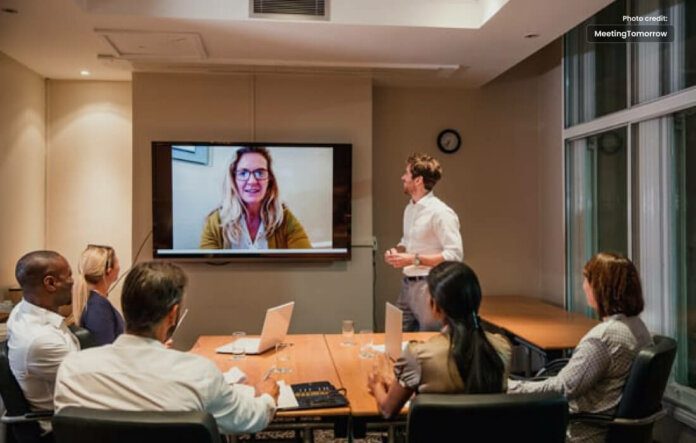Remote work era: Conference calls essential for global collaboration.
Whether you are connecting with colleagues, clients, or stakeholders, conducting effective conference calls is crucial for driving productivity and maintaining strong relationships. In this blog post, we will delve into the world of conference calls, exploring the benefits, best practices, and tips to ensure successful and engaging virtual meetings.
The Power of Conference Calls
Conference calls serve as a bridge, connecting individuals from different locations in real-time. They eliminate the need for physical meetings, saving time, reducing travel costs, and promoting eco-friendly practices. Here are some key advantages of conference calls:
-
Global Connectivity:
Conference calls enable collaboration with team members, partners, and clients across the globe. Regardless of geographical barriers, participants can connect, share ideas, and work together seamlessly.
-
Enhanced Collaboration:
By facilitating real-time communication, conference calls foster collaboration among remote or distributed teams. Participants can discuss projects, exchange feedback, and collectively brainstorm innovative solutions.
-
Time and Cost Savings:
With conference calls, you can eliminate the time-consuming process of arranging physical meetings. Additionally, reduced travel costs contribute to overall budget optimization for organizations.
-
Flexibility and Convenience:
Conference calls offer the flexibility to participate from any location, be it your office, home, or while on the go. This convenience empowers individuals to engage in meetings without compromising their productivity or work-life balance.
Best Practices for Effective Conference Calls
To make the most of your conference calls and ensure productive discussions, it’s essential to follow some best practices
-
Prepare an Agenda:
Develop a clear agenda outlining the topics to be discussed and share it with participants in advance. This helps everyone come prepared and stay focused during the call.
-
Test Technology and Connectivity:
Ensure that all participants have access to the necessary technology (such as a reliable internet connection, compatible software, and headsets) and test it beforehand to avoid technical glitches.
-
Start on Time:
Punctuality is key to a successful conference call. Begin the call on time to respect everyone’s schedule and maximize the allocated time for discussions.
-
Establish Meeting Etiquette:
Encourage participants to mute their microphones when not speaking to minimize background noise. Encourage active listening, respectful communication, and the opportunity for everyone to contribute.
-
Engage Visuals and Screen Sharing:
Utilize video conferencing capabilities to foster a more engaging and personal connection among participants. Additionally, screen sharing can be utilized to present visuals, data, or documents to enhance understanding and collaboration.
-
Encourage Interaction:
Engage participants by encouraging them to ask questions, share their thoughts, and actively participate in the discussion. This promotes a collaborative environment and ensures that all voices are heard.
-
Summarize Action Points:
At the end of the conference call, recap the key takeaways and action points. Share meeting minutes or follow-up emails to keep everyone informed and accountable for their assigned tasks.
Tips for a Successful Conference Call Experience
Here are a few additional tips to enhance your conference call experience:
-
Use a Quiet and Professional Environment:
Find a quiet space where you won’t be disturbed to ensure clear audio and minimal distractions. A professional backdrop also adds to the overall credibility of the meeting.
-
Speak Clearly and Concisely:
Enunciate your words and speak at a moderate pace to ensure that all participants can follow your points. Being concise helps maintain focus and avoid information overload.
-
Practice Active Listening:
Engage in active listening by paying attention to what others are saying, taking notes, and responding appropriately. This demonstrates respect and helps build stronger relationships with your peers.
Find out more about https://rockedgeurdu.com/




